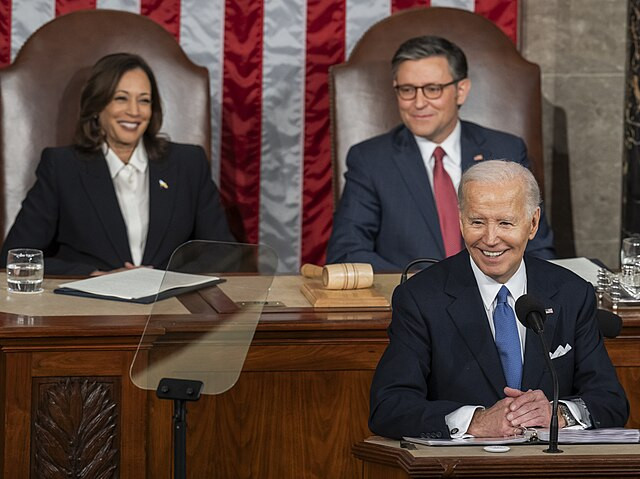Texas and 15 other Republican-led states have filed a lawsuit against the Biden administration, challenging a newly introduced program designed to provide a pathway to citizenship for immigrants married to U.S. citizens. The program, known as "Keeping Families Together," offers legal status to nearly 500,000 immigrant spouses who entered the country illegally but have resided in the U.S. for at least ten years.
The lawsuit, filed on Friday in federal court in Tyler, Texas, argues that the Biden administration has overstepped its executive authority by implementing a program that bypasses congressional approval. Texas Attorney General Ken Paxton, one of the leading figures in the lawsuit, claims that the initiative violates the Constitution and exacerbates what he describes as an ongoing "illegal immigration disaster" that disproportionately affects states like Texas.
"This action incentivizes illegal immigration and will irreparably harm the plaintiff states," the lawsuit asserts. The coalition of states argues that the program effectively grants amnesty to individuals who broke the law by entering the U.S. illegally, a move they contend undermines the rule of law and places an undue burden on state resources.
The Keeping Families Together program, which began accepting applications on Monday, allows immigrant spouses to apply for "parole in place," a temporary status that grants permission to remain in the U.S. legally, apply for a green card, and eventually pursue citizenship. The program also extends to approximately 50,000 children under the age of 21 who have at least one U.S. citizen parent, allowing them to obtain temporary parole status.
The Biden administration has defended the program as a necessary measure to address the humanitarian needs of families who have been living in the U.S. for years and contributing to society. Supporters of the program argue that it aligns with existing laws and provides a reasonable solution for families who would otherwise face the prospect of prolonged separation if forced to leave the country to regularize their status.
However, critics within the Republican Party view the program as a blatant political maneuver aimed at garnering support from immigrant communities ahead of the upcoming presidential election. Stephen Miller, a former adviser to President Donald Trump and a co-counsel in the lawsuit through the conservative nonprofit America First Legal, labeled the program "brazenly unlawful" and accused the Biden administration of using it to advance an open-borders agenda.
The timing of the lawsuit is particularly significant as immigration remains one of the most polarizing issues in the United States, especially in the context of the 2024 presidential election. Former President Donald Trump, who is expected to face off against Democratic candidate Vice President Kamala Harris, has already made immigration a central focus of his campaign, promising to restore the strict policies that defined his administration.
The lawsuit also underscores the broader legal and political battles that have characterized the relationship between Texas and the Biden administration. Texas has repeatedly clashed with federal authorities over immigration and border security issues, often taking the administration to court over policies it views as too lenient.
The Department of Homeland Security, named as a defendant in the lawsuit along with DHS Secretary Alejandro Mayorkas, has not yet responded to the legal challenge. However, the White House and DHS officials are expected to defend the program vigorously, arguing that it is both lawful and necessary to address the realities of immigration in the 21st century.
The lawsuit is likely to face a lengthy legal process, with potential implications for hundreds of thousands of families currently residing in the U.S. under uncertain circumstances. Karen Tumlin, founder and director of the Justice Action Center, expressed disappointment in the legal challenge, describing it as "unsurprising yet extremely disappointing and cruel."
"However, it's important to emphasize that nothing changes for now, and the process is still open and accepting applications," Tumlin said, urging eligible individuals to continue applying for the program despite the ongoing legal battle.






